
Editable Templates for All Activities
If you would like the templates to create these activities for your classroom from the workshop: Text 33444 with the word GUIDED
Problems Worth Solving
When students have the opportunity to solve real problems that mean something to them, math happens naturally. They are not looking for key words or trying to find the pattern. There is a difference between students working problems that can be done the same way each and every time and looking at the information and solving a problem that applies to them! When you are looking for a problem worth solving, the internet is your friend! I find the best problems by looking at things my students are interested in- a fun theme park, a bowling alley, a trampoline park etc... When you use this kind of information, it is easier for students to solve problems because they are no longer thinking about the steps they need to take, but they are thinking about what the operations do to numbers.

Cube It
Cube it is a strategy that uses all of the levels of Blooms. Start with a cube template. Create tasks and questions using the information in your problem worth solving. Students roll the cube and complete the task.



Say Mean Matter
Say Mean Matter is a strategy to help students see what the information says, then decide what it means and most importantly why it matters. Students are familiar with author's purpose- why did the author include this in the passage, is a question they have been answering for a long time! When they see the problem as something written by a human, then things matter! Tip: When working with younger students, you need to pick the phrases to analyze. If you don't they will pick something that doesn't matter! After they use this strategy, they will start to see what matters and what does not matter in a math situation!



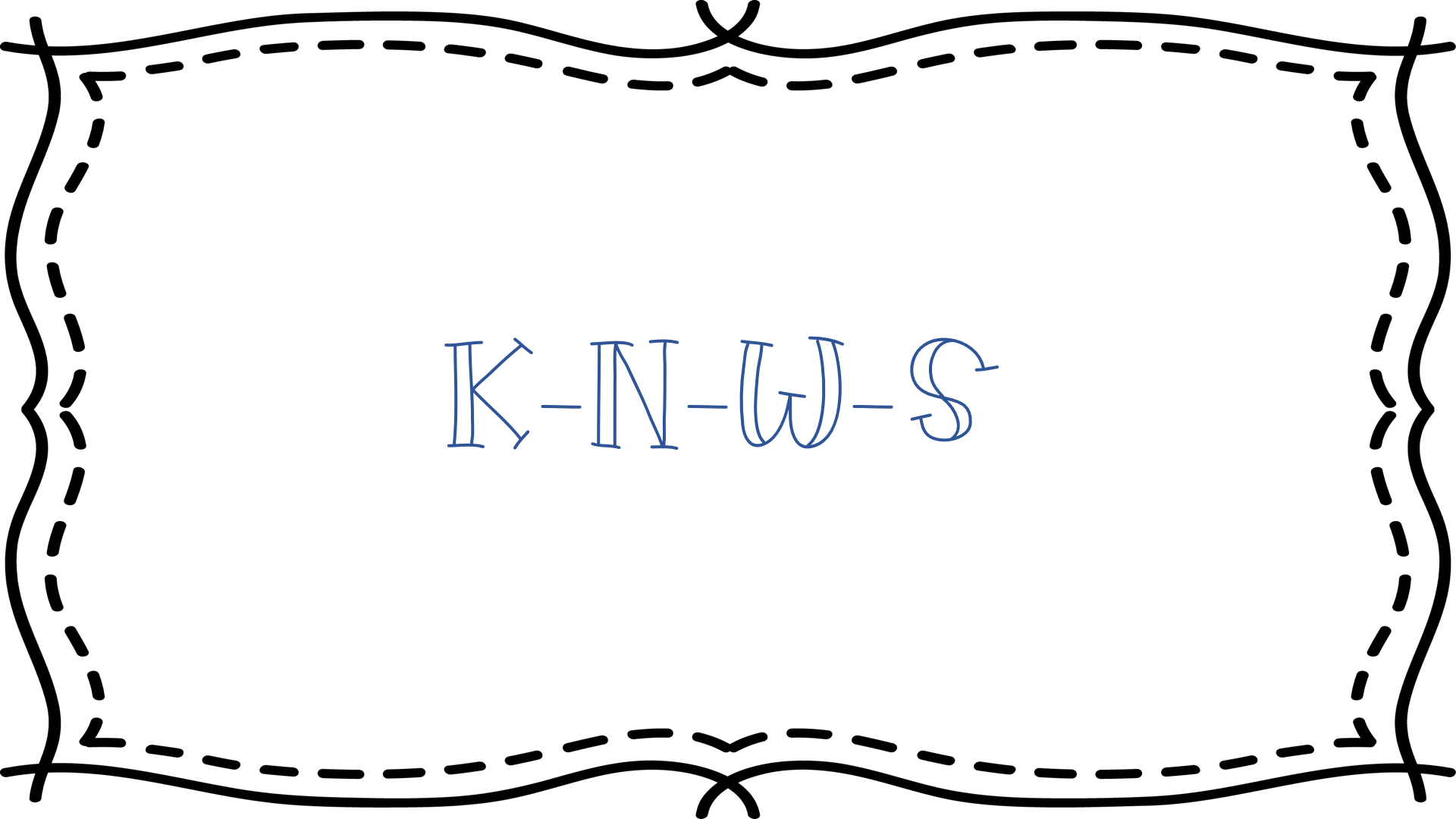
K-N-W-S
This strategy is for close reading of math word problems. As students closely read a math problem, they should identify:
The facts they KNOW from the information given in the problem
The information given in the problem that they do NOT need
What the problem WANTS them to find
What STRATEGY or operations will be used to solve the problem


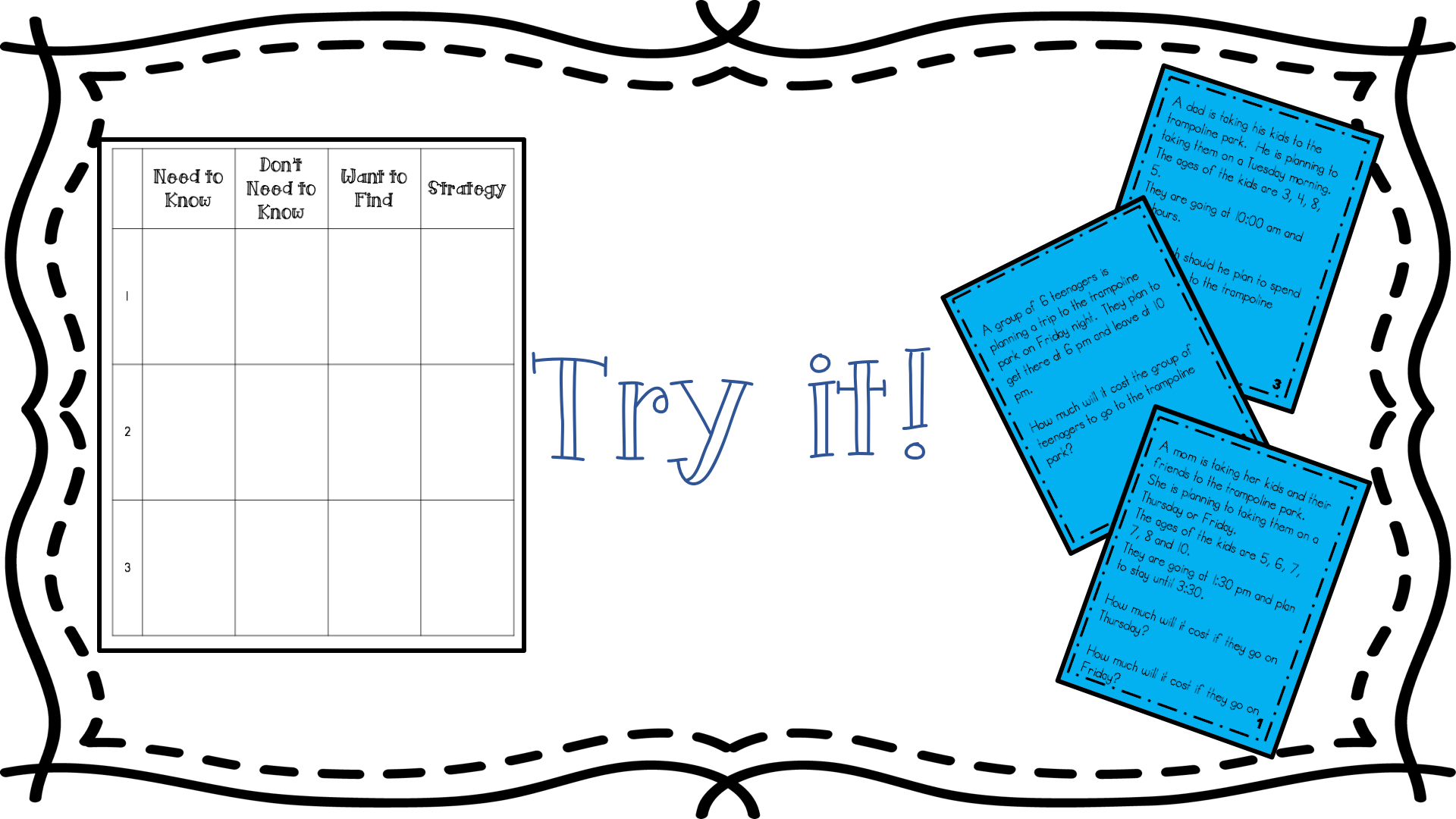
Read Again, And Again, And Again!
Teach students how to read the text three times.
During the first read, students should read for the “gist” of the source text
On the second read, students should dig a little deeper and look closely at the numbers and what they represent.
With the third read, students should integrate knowledge and ideas by putting everything together.
When you finish, have students write their own problem using the information from the text on a sticky note. Then play musical shares!
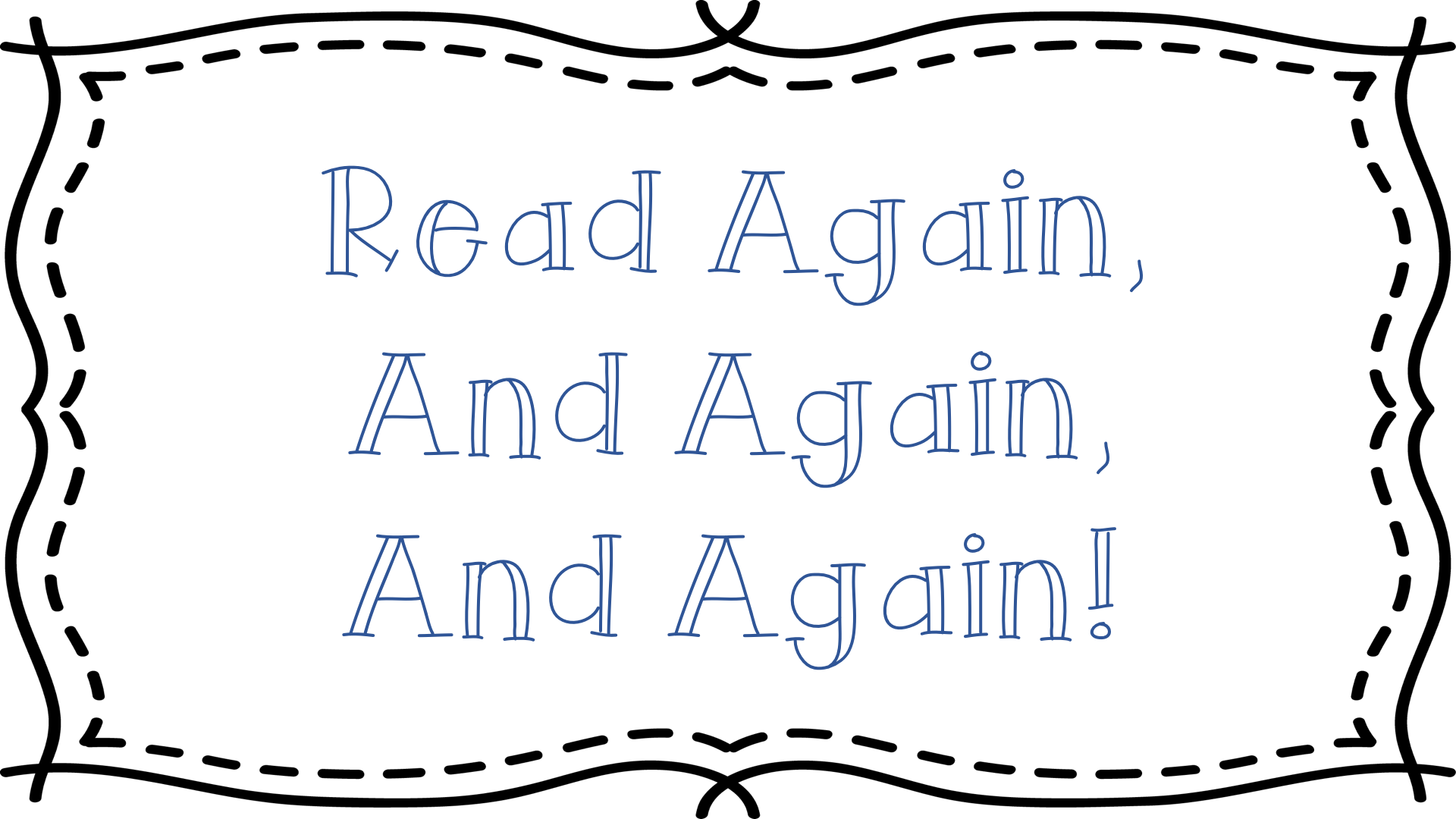
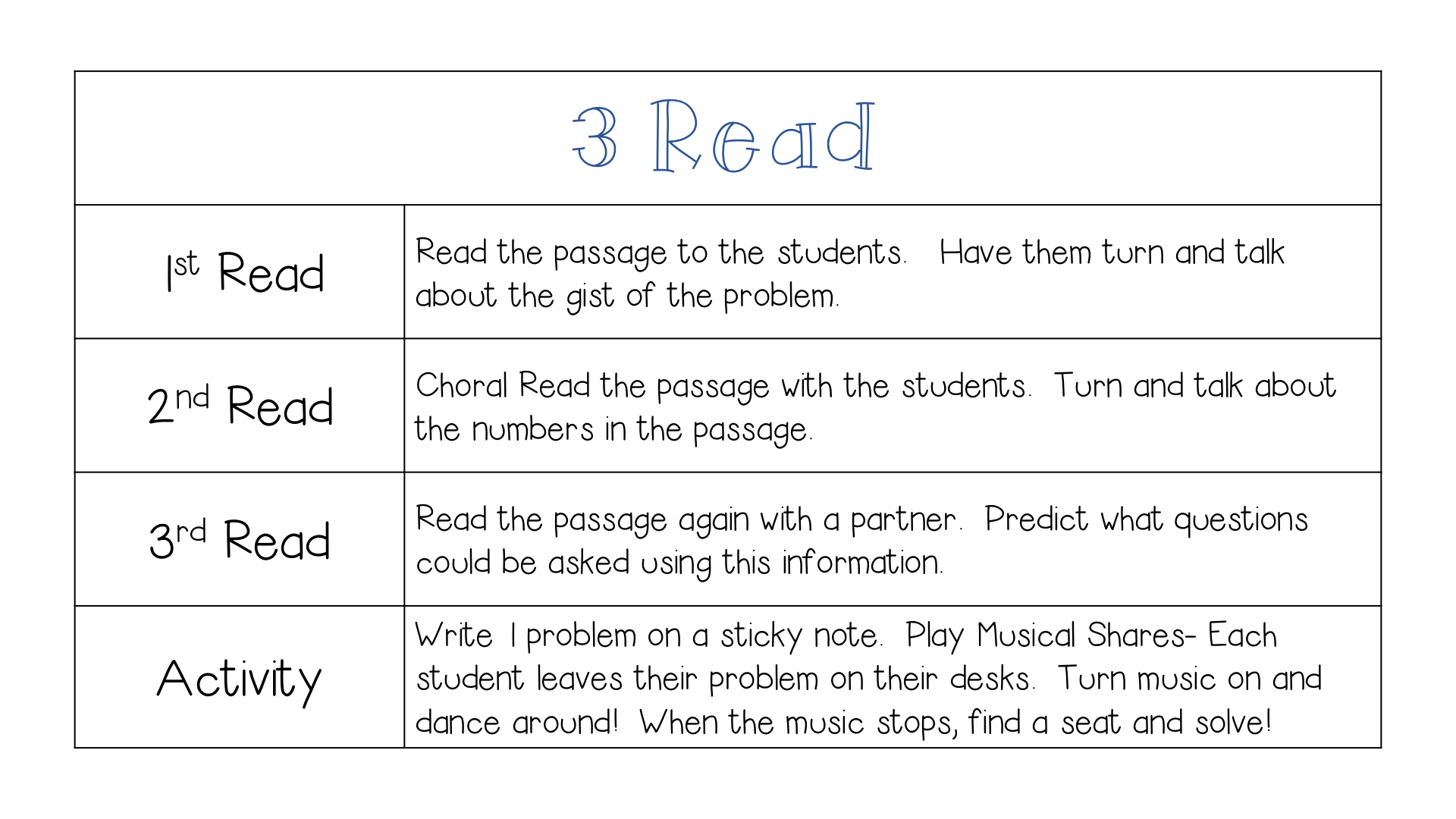
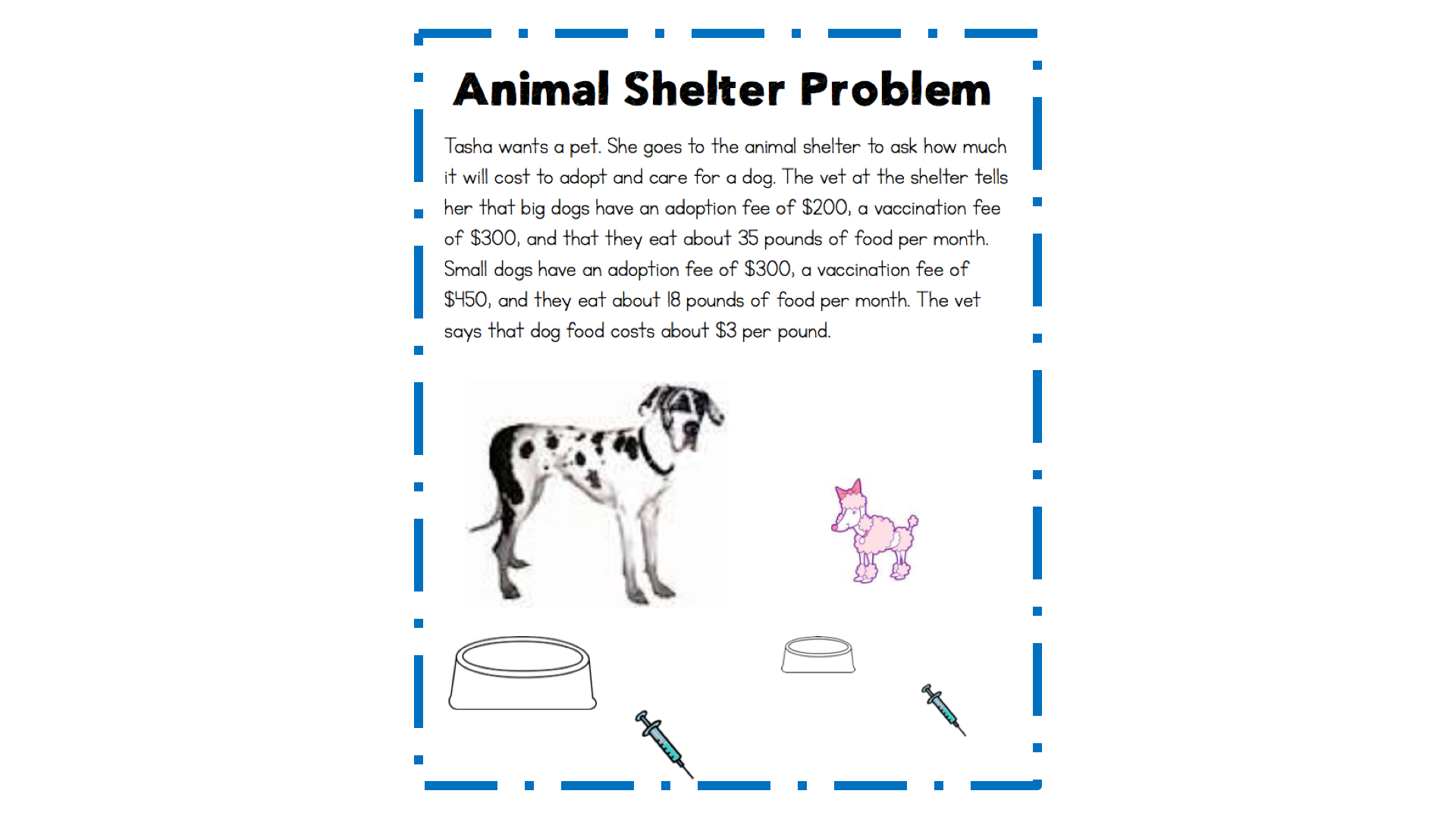
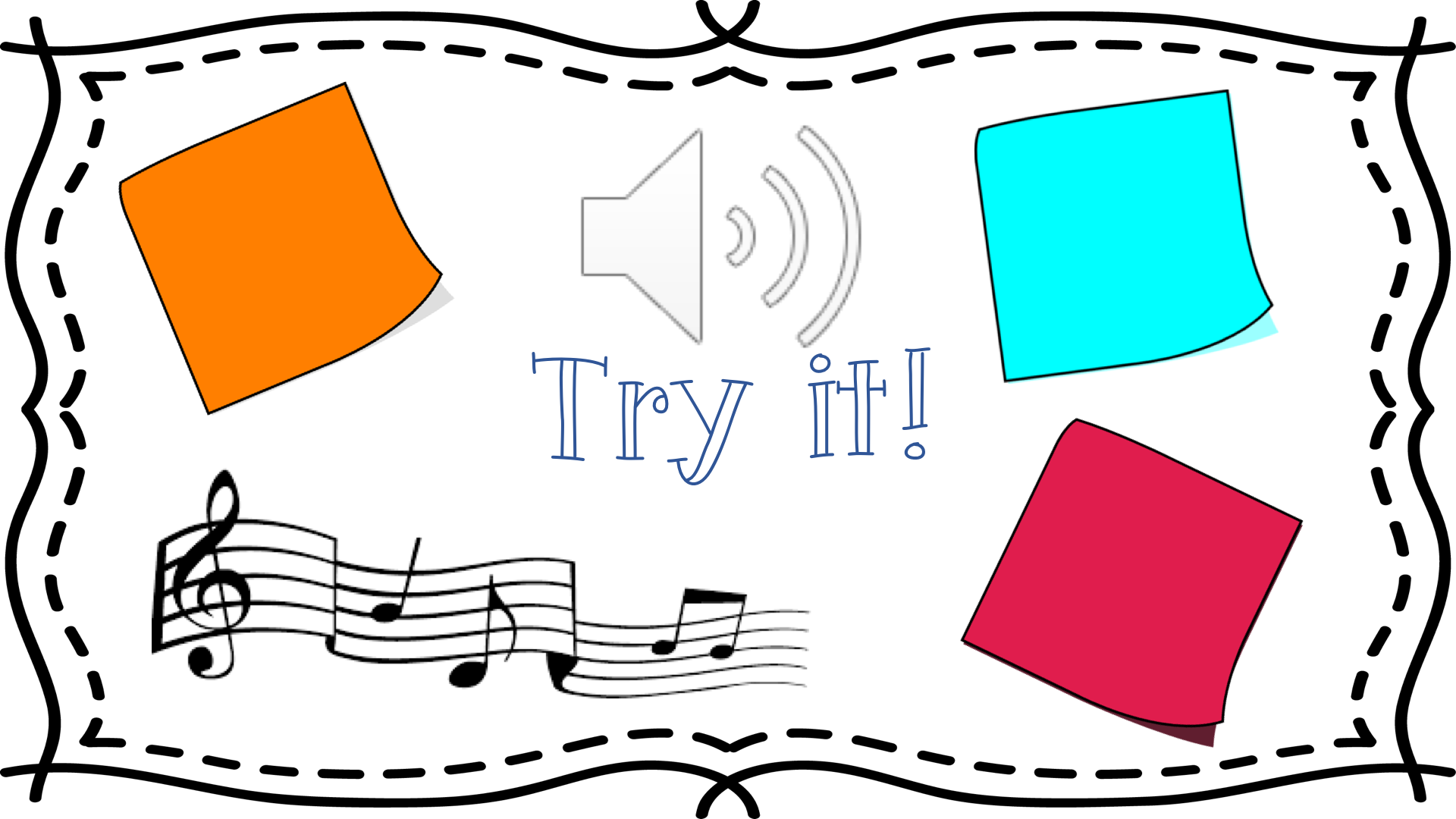
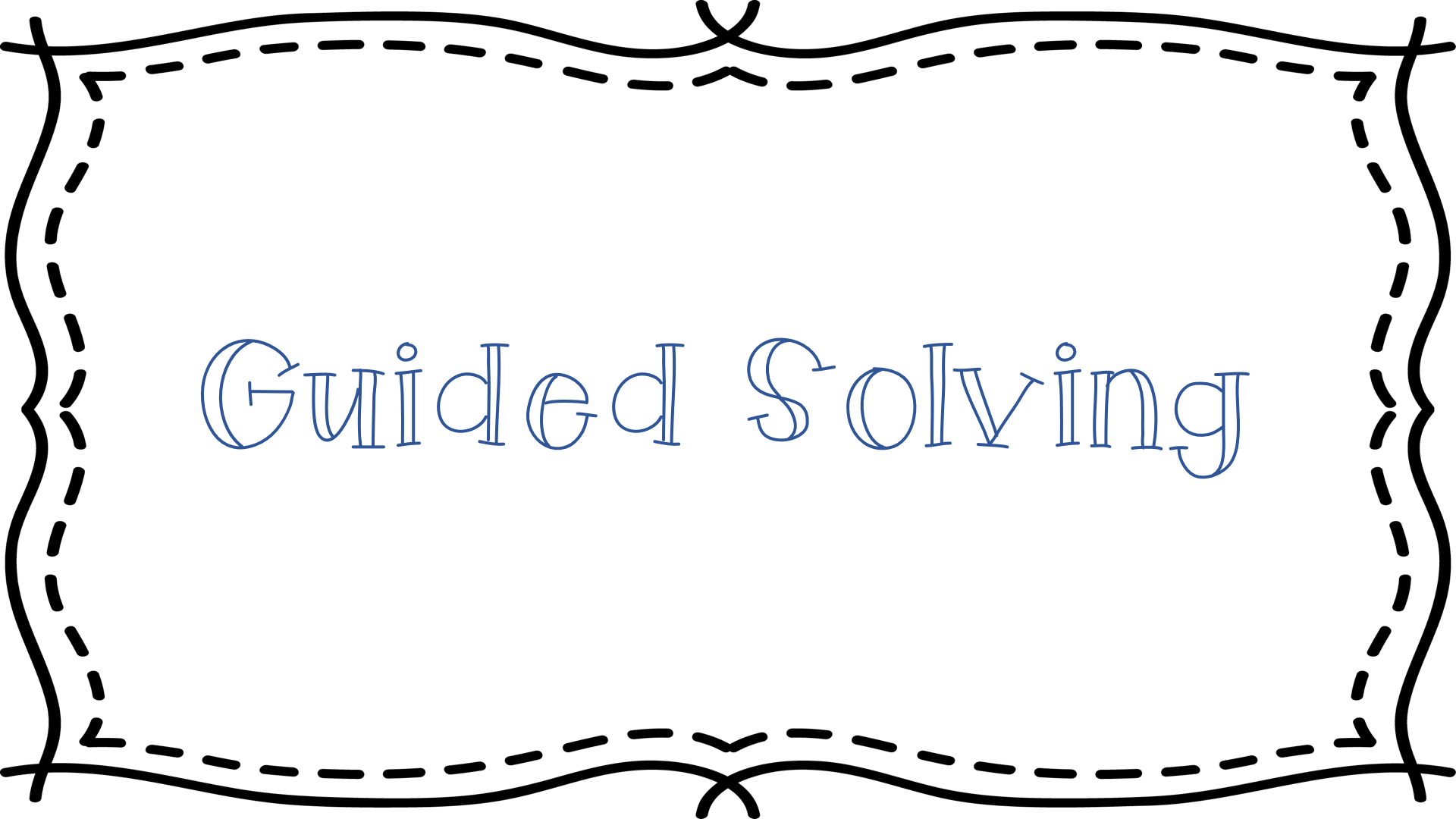
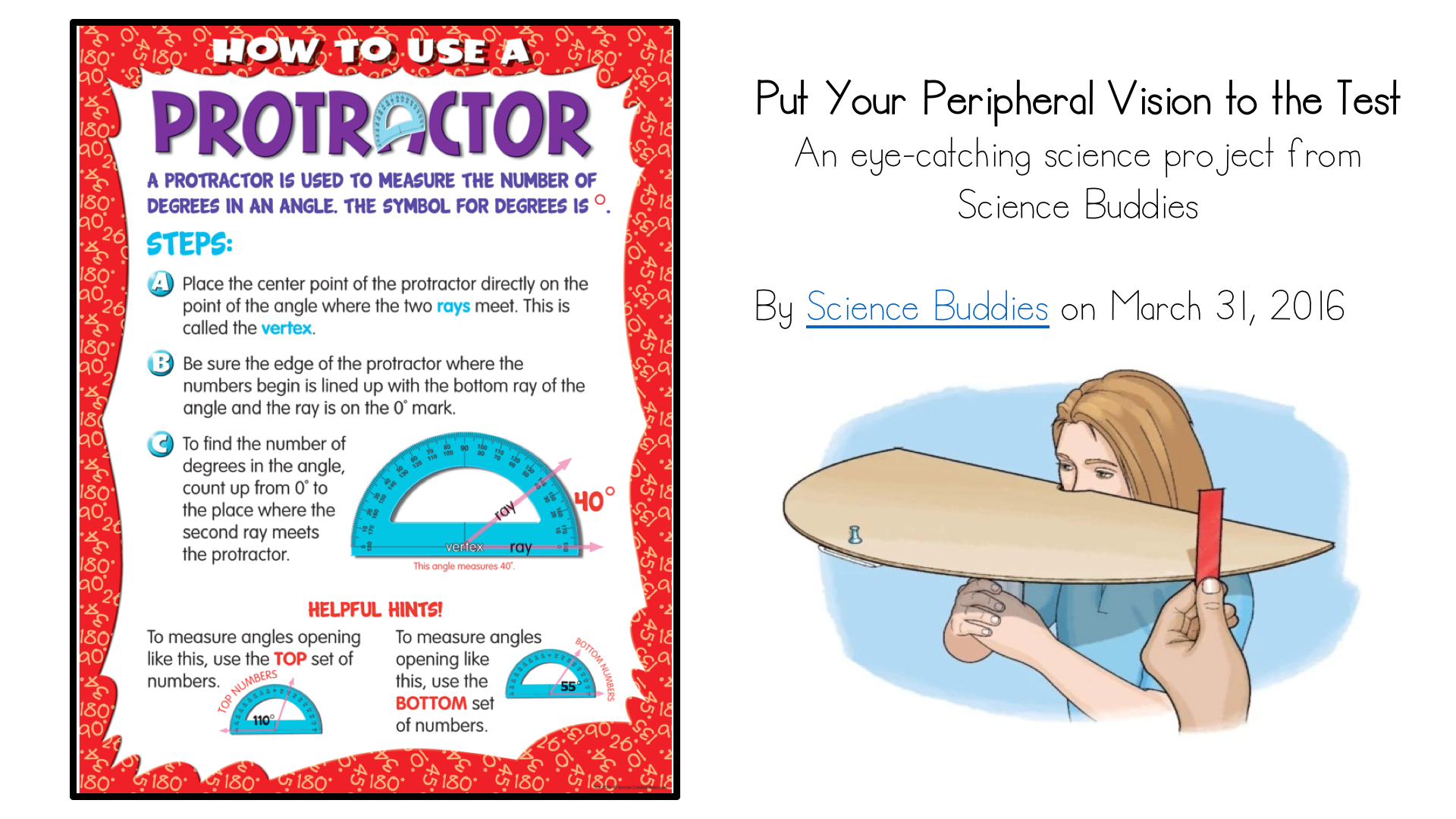
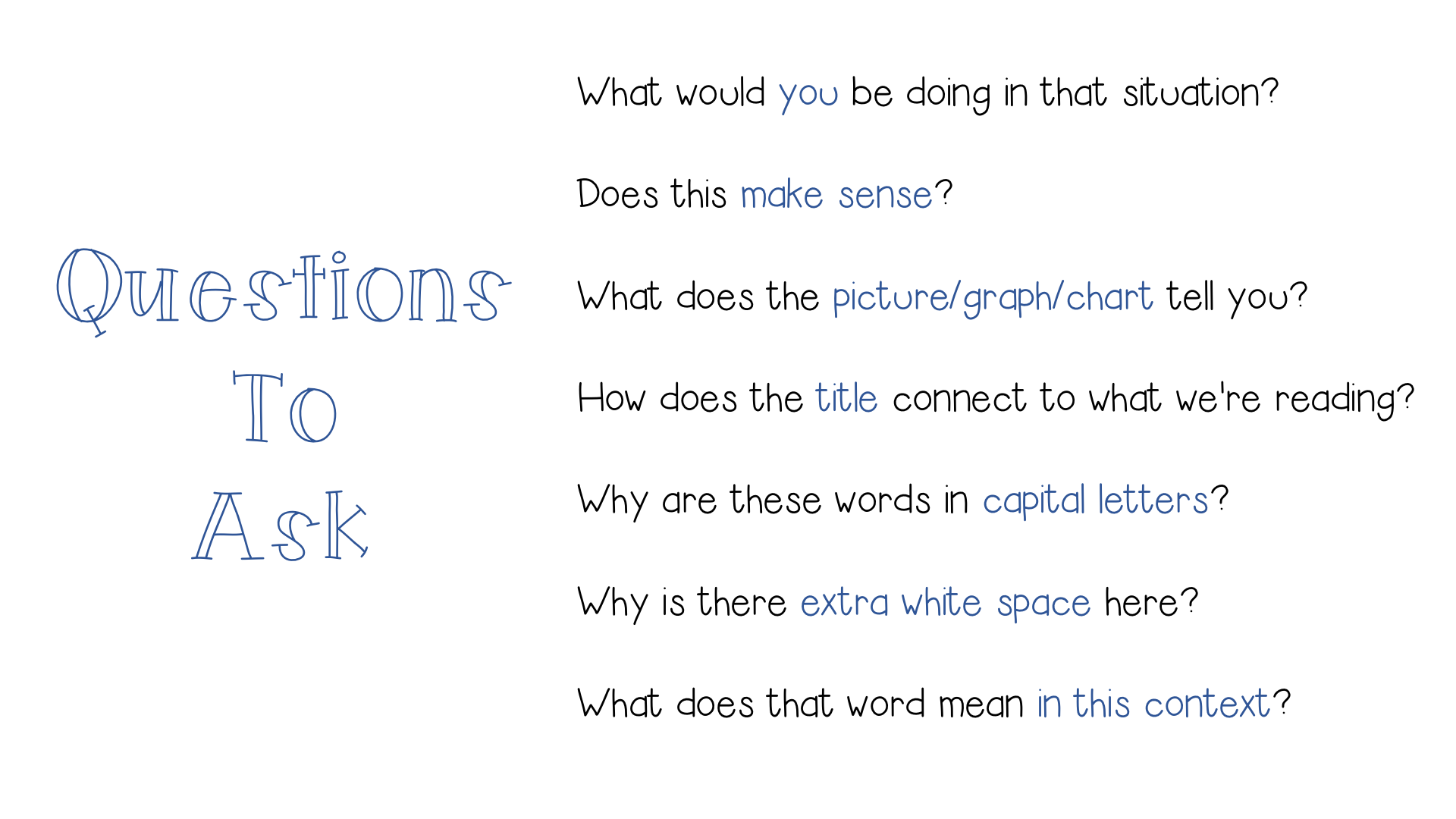
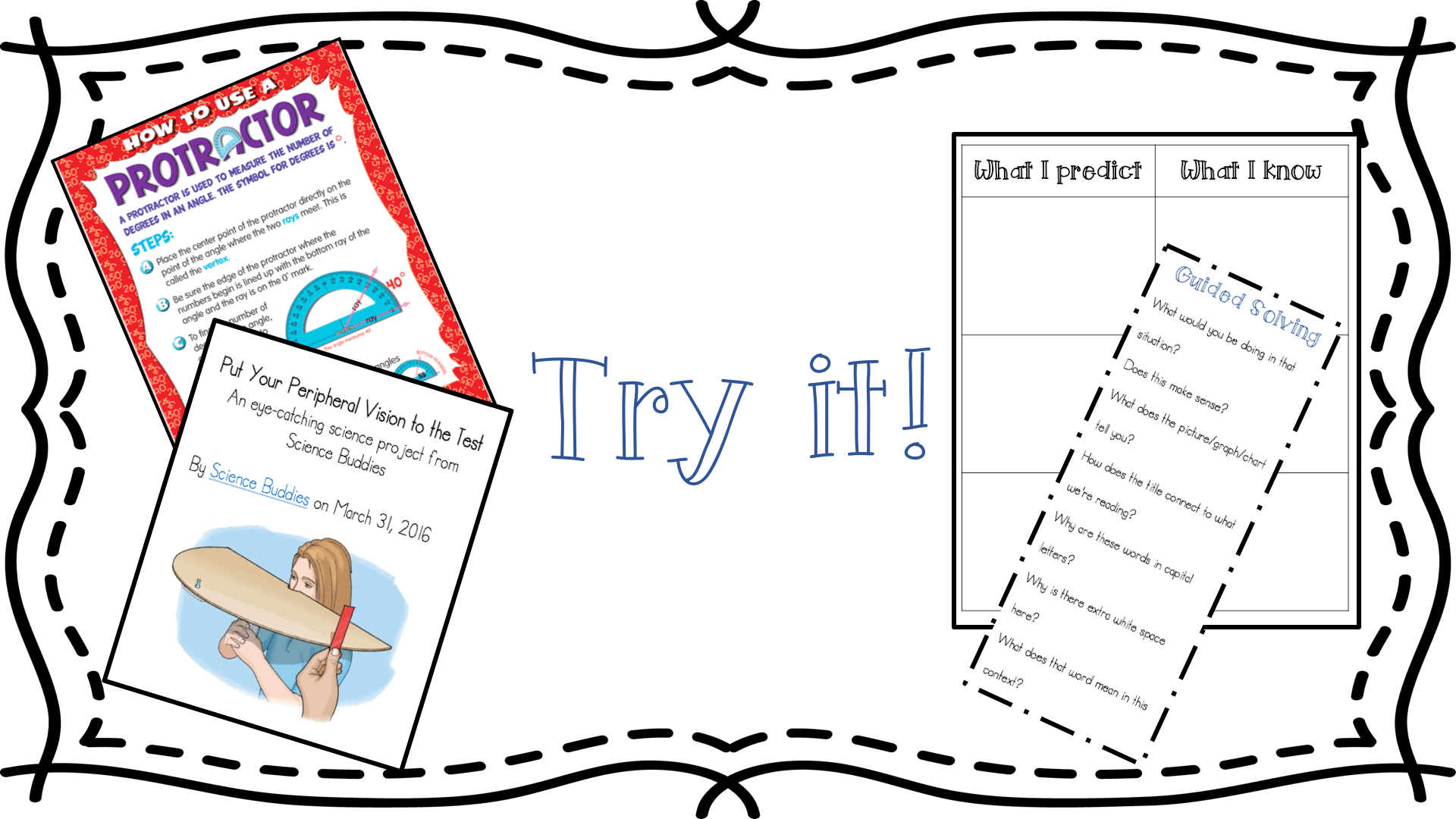
Guided Solving
One strategy that may be familiar to elementary reading teachers, and which seems particularly useful in the context of mathematics, is that of guided reading sessions (Allen, 2003). In such sessions, the teacher is still responsible for helping students connect what they are reading to prior knowledge. The teacher should first present the text or graphic to students in small, coherent segments, being sure to process each segment before going on to the next one. As the reading progresses, the teacher should ask process questions that she wants the students to ask themselves in the future. They may be asked to predict what the reading will be about simply by reading the title of the piece (if there is one, such as a graph or story problem). Next the students should make two columns on a piece of paper, one headed “What I Predict” and the other headed “What I Know.” Once the students have silently read each section of the piece, they should fill out each column accordingly. At this point, the teacher should ask students questions such as the following:
What would you be doing in that situation?
Does this make sense?
What does the picture/graph/chart tell you?
How does the title connect to what we're reading?
Why are these words in capital letters?
Why is there extra white space here?
What does that word mean in this context?
Editable Templates for All Activities
If you would like the templates to create these activities for your classroom from the workshop: Text 33444 with the word GUIDED
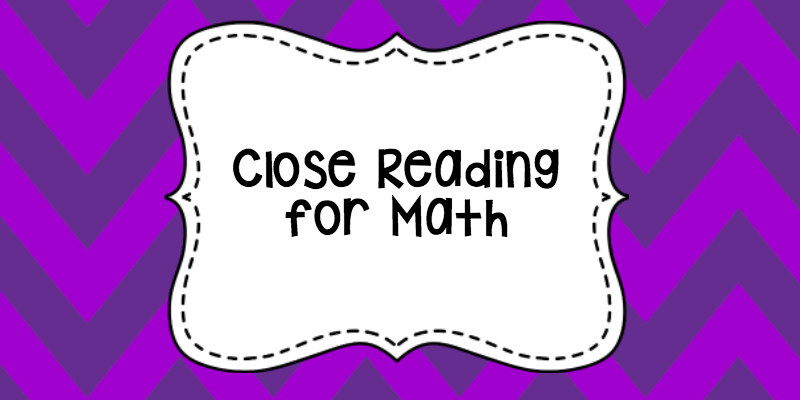
Facebook Comments